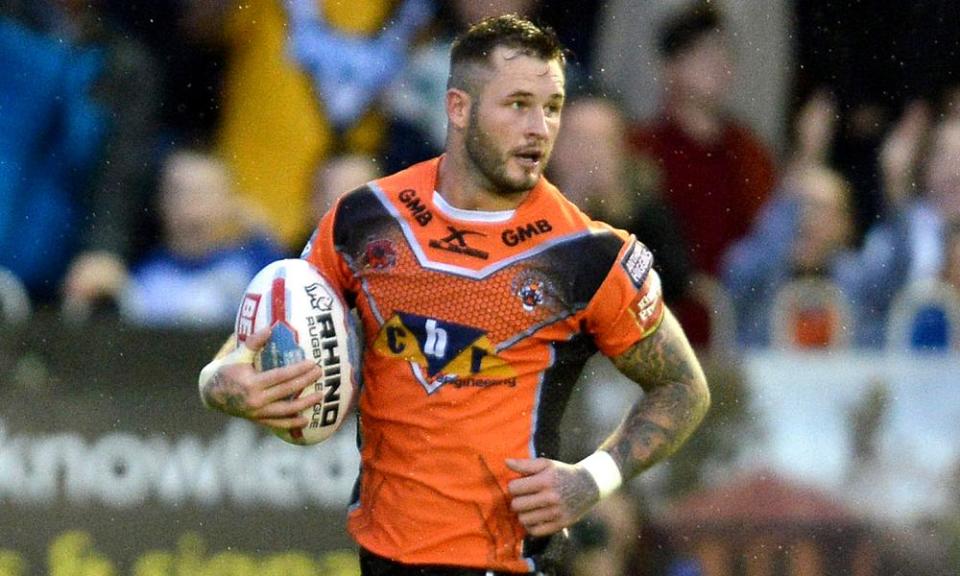Players’ union chief says blame society, not rugby league, for increased drug use

The head of the Rugby League Players’ Association has claimed that his sport does not have a problem with drugs and said that the recent spate of failed tests are more indicative of society as a whole, not the game.
Thomas Minns, the Hull KR centre, last week became the fourth Super League player in less than a year to test positive; the club and player insist the substance was not performance-enhancing. The former Man of Steel, Zak Hardaker, as well as Adam Walker and Rangi Chase, have also recently failed tests due to recreational drugs.
Garreth Carvell, the former Great Britain prop who leads the recently revived players’ union in Britain, believes the problem transcends rugby league. “I honestly think it’s a society thing,” he said.
“Rugby players are from a background where they still knock around with the friends they grew up with in working-class areas. They’re not really in the limelight and can live a fairly normal life. And, for whatever reason, recreational drugs don’t seem to be as frowned upon as they once were.”
Minns cited the death of his mother as mitigation for turning to drugs and, while the RLPA will offer support to him and anyone who tests positive, Carvell insists there is no excuse for substance abuse. “If you get caught with drugs in your system, recreational or otherwise, you know the consequences and you will be banned,” he said.
“Whatever the circumstances are and whether you’re depressed or not, you are accountable for that mistake. The only real thing it’s going to do in the long run is cost you a lot of money. There are kids across the country looking up to you as a player and it’s simply not acceptable, no matter what.”
Carvell also accepts more can be done not only to help players through a suspension imposed by UK Anti-Doping but to ensure players are educated on the risks of turning to drugs. “We want to help these people and help show them there is life to be enjoyed without the use of drugs and, furthermore, outside of rugby league,” he said. “Improving those support channels is something the RLPA is pushing for and I know clubs feel the same.
“I had a conversation recently with a player who’d been to Sporting Chance, and he said it was great - but you come back after your 30 days and you’re thrust straight back into life as a professional sportsman with all the same people and same issues around you. Other addicts are able to surround themselves with the right people. That is the challenge for us.”

 Yahoo Sport
Yahoo Sport 





































